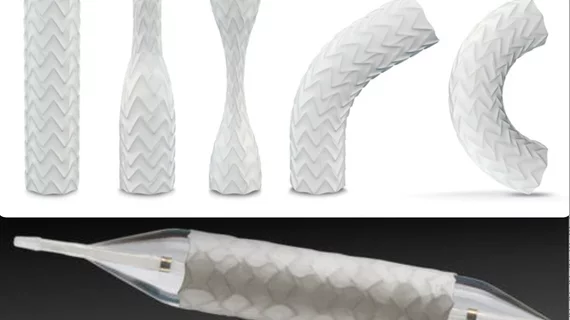More than 68,000 stents recalled after multiple injuries
The U.S. Food and Drug Administration (FDA) has announced that Atrium Medical Corp., a subsidiary of Getinge, is recalling its iCast Covered Stent System. Customers have reported issues with the balloon or catheter hub separating from the catheter delivery systems, mostly during off-label use in a patient's blood vessels.
No devices need to be returned; this recall is focused on providing customers with updated instructions.
Atrium Medical first acted in March, informing customers that it was updating its instructions for its Advanta V12 Covered Stent System, which is not available in the United States. The recall has now been expanded so that it includes the iCast Covered Stent System, which is available in the United States.
The iCast Covered Stent is indicated for the treatment of tracheobronchial strictures produced by malignant neoplasms. It has not been approved by the FDA for endovascular use.
The FDA has categorized this as a Class I recall, meaning the use of any impacted devices could lead to “serious injuries or death.”
There have been 75 complaints and nine patient injuries, but no deaths.
Additional instructions
Atrium Medical's updated instructions for the iCast Covered Stent System focused on deflating and withdrawing the device.
The company said inflation and deflation of the balloon may take longer when using higher concentrations of contrast media or other viscous fluid in off-label endovascular procedures. Also, the balloon may take longer to deflate than prescribed in the iCast instructions for use (IFU).
“If a separation occurs and the balloon is not fully deflated before the device is removed from a person’s blood vessel, it may cause the procedure to take longer than expected," according to the FDA’s advisory. “The separated portion also may remain in the body after the delivery catheter is removed, potentially leading to vascular occlusion. Depending on the location of failure, occlusion may lead to amputation, embolism, loss of organ function, organ infarction, and tissue infarction.” The FDA said these complications also expose the patient to additional anesthesia and/or additional imaging contrast.
Atrium/Getinge said in the recent update of the recall to deflate the balloon by pulling vacuum on the inflation device to its maximum volume and allowing sufficient time for full deflation. Deflation times may vary based on balloon size, catheter length and inflation media used, and deflations may take longer with larger devices and higher concentrations of contrast. Atrium also said users need to visually verify full deflation of the balloon via fluoroscopy before attempting to withdraw the delivery system.
“Do not force withdrawal of the delivery system if resistance is encountered,” according to the company’s instructions. “Forcing withdrawal may result in damage to the delivery system, including separation of the balloon or catheter hub from the delivery catheter. If unable to fully deflate the balloon or resistance is encountered, remove the delivery system and introducer sheath as one unit.”
The iCast Covered Stent recall includes 68,812 devices distributed in the United States from December 2018 to March 2022. Lot information is available here
Related Content on FDA Recalls in Cardiology:
FDA announces Class I recall of 4,800 imaging catheters due to risk of vascular injury
Medtronic recalls more than 6,000 catheters due to potential damage, loss of sterility
FDA announces another recall of common hypertension medication due to potential cancer risk
Congress investigating FDA over heart device recall, says agency ‘failed to protect consumers’
FDA announces new insulin recall due to potential labeling issue
FDA announces recall of hypertension medications due to potential cancer risk

